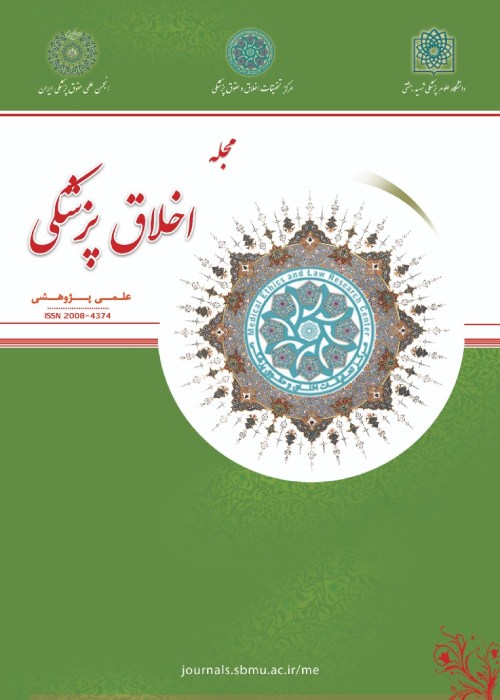Mediating Role of Justice Sensitivity in Relationship between Attachment Styles and Academic Dishonesty
Justice sensitivity is a stable personality trait that relates to prosocial behavioral tendencies and altruistic orientation. Secure attachment and deep emotional bond with others will increase justice sensitivity in students and prepare the ground for academic honesty and efficiency of education system. Considering the role of this personality trait in healthy educational behaviors; the purpose of this study is to investigate the antecedents and outcomes of justice sensitivity in a frame of a causal model.
The present study is descriptive and in the form of structural equation modeling in which, the attachment styles were considered as independent variables, justice sensitivity as a mediating variable and academic dishonesty as a dependent variable. Participants were 240 (boys and girls) M.S. Shiraz University students. They completed Justice Sensitivity Scale, Revised Adult Attachment Scale and Academic Dishonesty Scale. Factor analysis method was used to verify validity and the Cronbach Alpha was applied to determine the reliability of the scales؛ Also, bootstrapping method in AMOS 24 was conducted to examine the mediational effects of the intervening variables.
Ethical Considerations:
Participants completed the scales online after they were informed of the study aims and were ensured on paper that the responses would remain confidential.
Results showed that attachment styles were significant predictor of academic dishonesty through which secure attachment style was negative significant predictor of academic dishonesty (β=-0/44, p=0/0001) and insecure attachment styles (avoidant and anxious) were respectively positive significant predictors of academic dishonesty (β=0/13, p=0/0001) and (β=0/36, p=0/0001). Results also revealed that secure attachment style predicted justice sensitivity positively (β=0/41, p=0/0001) and avoidant style predicted justice sensitivity negatively (β=-0/35, p=0/0001). Furthermore, results demonstrated that justice sensitivity mediated the relationship between attachment styles and academic dishonesty. In general; findings confirmed that secure attachment style decreases academic dishonesty through increasing the justice sensitivity.
According to the hypothesis testing results, it can be concluded that Secure adults tended to hold positive self-image and positive image of others; meaning that they had both a sense of worthiness and an expectation that other people were generally responsive and trustworthy. This means that secure students will apply effective and ethical strategies to achieve their educational goals and never intend to violate the rights of others to gain academic legitimacy.
- حق عضویت دریافتی صرف حمایت از نشریات عضو و نگهداری، تکمیل و توسعه مگیران میشود.
- پرداخت حق اشتراک و دانلود مقالات اجازه بازنشر آن در سایر رسانههای چاپی و دیجیتال را به کاربر نمیدهد.


